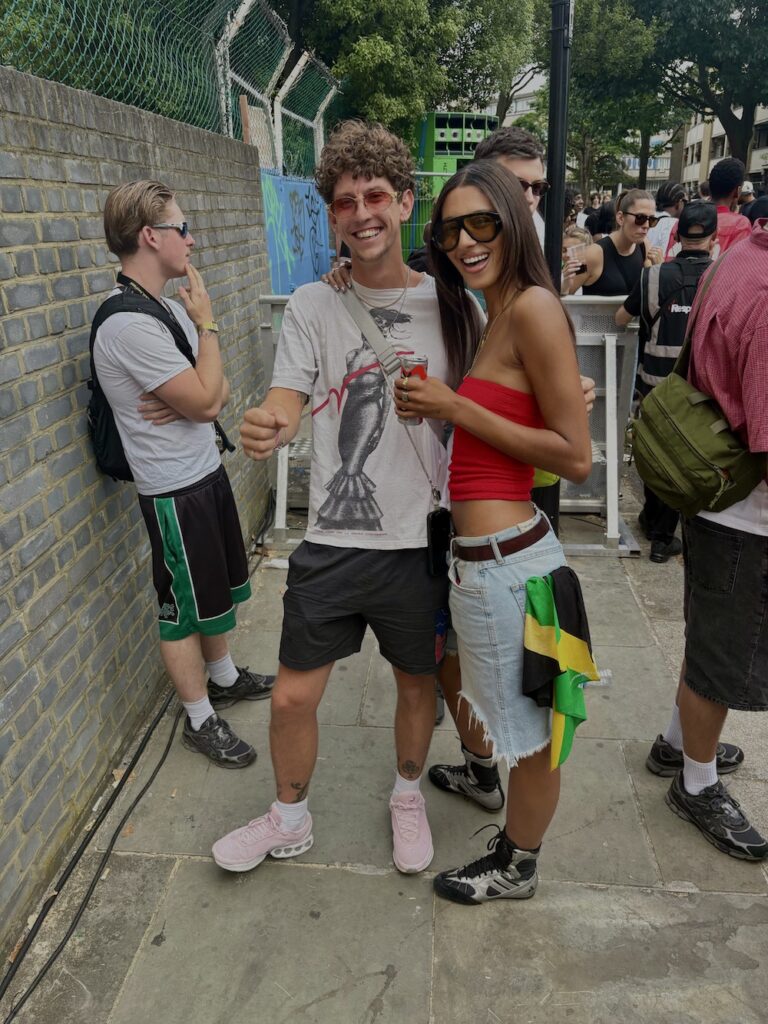NHC CARNIVAL OP-ED: WHY WE MUST REMEMBER THE ROOTS OF NOTTING HILL CARNIVAL – HONEST 2025 RECAP
NHC CARNIVAL OP-ED: Every August Bank Holiday, Notting Hill Carnival transforms West London into a sea of music, dance, and richness. It is one of the largest street festivals in the world and one of the most joyous expressions of culture you’ll find in Britain – it’s totally electric. Yet, in the midst of the glitter, the garms, and the sound systems, I often catch myself thinking: do we truly remember why it exists?
Carnival is not just a party. It is resistance. It is remembrance. It is Caribbean identity made visible in the streets of London.
The roots of Notting Hill Carnival stretch back to the late 1950s, when the Caribbean community and Windrush generation faced open hostility, racism, and violence in London. Carnival began as a way of reclaiming space, turning pain into rhythm, and struggle into joy. It was, and still is, about saying: we are here, we belong, and we will celebrate our culture on our own terms.
That legacy matters today more than ever. And yet, every year, the narrative risks being watered down. Headlines reduce it to statistics. Brands jump on it as a backdrop. Culture magazines citing it as ‘West London Christmas’. For some, it’s become just another date in the social calendar. But Carnival has always been more than just a spectacle. It is a living act of resistance that honours the struggles and contributions of the Caribbean diaspora in the UK.
Despite the adversarial headlines around the safety of Carnival, it contributes approximately £396 million annually to London’s economic landscape – far exceeding its operational and policing costs. Beyond economic returns, Carnival sustains jobs, supports hospitality and creative industries, and draws international visits, all reinforcing its value.
Rhaune Laslett, Founder of Notting Hill Carnival described it as the “emergence of an oppressed and disadvantaged people waiting to express themselves” and that sentiment rings true today. Not only an important emblem but a marker for identity for the Windrush generation and the first, second and third generation (like myself) who follow in their footsteps today. With free spaces for culture on the demise, third spaces for young, diverse talent to express themselves hold the key for sustaining and nurturing cultural innovation in the UK.
When I’m at Carnival, I feel the energy of something deeper. A reminder that joy itself can be radical. That taking up space with our culture is powerful. That the beautiful generations before us fought hard so we could dance freely in the streets of Notting Hill today.
Being half-Jamaican and growing up in West London, Carnival was never just an event on the calendar for me, it was part of the fabric of my summers. I attended with family and friends almost every year, and I vividly remember the streets, filled with music, smoke from jerk pans, and the feeling of the bass, it felt like home. It was where my heritage wasn’t just acknowledged but it was celebrated in full technicolour.

Brands follow where culture breeds, this isn’t new. But, there are ways we as brand guardians, we can show up properly and with heart at Notting Hill Carnival to ensure we protect something unique and important that constitutes our heritage in Britain.
- Honour the culture, don’t appropriate it – don’t reduce it to cliches. Use the full name “Carnival” instead of nicknames like “Carni.” Consult cultural experts to ensure any creative fully honours Caribbean heritage and the event’s deep social meaning.
- Focus on contribution over self-serving promotion – Carnival is about community and expression, not your brand bottom line. Any and all activities should enhance or support the experience, not completely over shadow it with overt advertising.
- Amplify beyond the streets – platforms like Spotify collaborated with a Black-owned creative agency (paq works) and photographer Ekua King to launch a rich digital microsite featuring playlists, cultural storytelling and amplified voices of Carnival. Think about how you can drive storytelling before and post the event itself.
- Let voices (instead of your brand) lead – put the power in the people, places and faces of Carnival. Honour their expression and narratives rather than focusing on brand-first messaging.
- Finally, understand Carnival’s current challenges – this year, Carnival almost didn’t happen. Luckily, weeks before the event almost £1 million was raised for secure safety and infrastructure. Any activation should not only benefit the brand but it is prudent to help support Carnival’s long-term survival and stability. Monetary contributions and collaborations with authorities can go a long way.
As someone who not only engages with Carnival as a consumer but who also creates culture for some of the UK’s biggest brands, it’s important we honour it. Carnival isn’t just important for Caribbean people, it’s part of London’s identity, part of Britain’s story. Without the Caribbean community, there is no Carnival, no sound systems, no culture to celebrate.
So while we celebrate, we also remember. Because forgetting its roots would mean losing the very essence that makes it so vital.





[INTERVIEW] WAVE MONTEGA HAS BIG THINGS COMING
[INTERVIEW] RUSS MILLIONS
[INTERVIEW] RUSS MILLIONS
Protected: Order – March 11, 2022 @ 01:18 PM